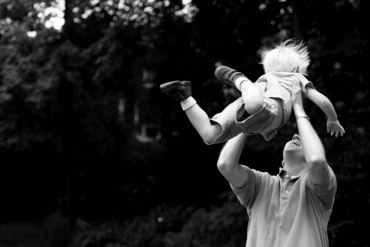1
Und Gott sprach zu Jakob: Mache dich auf, ziehe hinauf nach Bethel und wohne daselbst, und mache daselbst einen Altar dem Gott, (El) der dir erschienen ist, als du vor deinem Bruder Esau flohest.
2
Da sprach Jakob zu seinem Hause und zu allen, die bei ihm waren: Tut die fremden Götter hinweg, die in eurer Mitte sind, und reiniget euch und wechselt eure Kleider;
3
und wir wollen uns aufmachen und nach Bethel hinaufziehen, und ich werde daselbst einen Altar machen dem Gott, (El) der mir geantwortet hat am Tage meiner Drangsal und mit mir gewesen ist auf dem Wege, den ich gewandelt bin.
4
Und sie gaben Jakob alle fremden Götter, die in ihrer Hand, und die
inge, die in ihren Ohren waren, (d. h. die sie als Amulette trugen) und Jakob vergrub sie unter der Terebinthe, die bei Sichem ist.
5
Und sie brachen auf. Und der Schrecken Gottes kam über die Städte, die rings um sie her waren, so daß sie den Söhnen Jakobs nicht nachjagten.
6
Und Jakob kam nach Lus, welches im Lande Kanaan liegt, das ist Bethel, er und alles Volk, das bei ihm war.
7
Und er baute daselbst einen Altar und nannte den Ort El-Bethel: (Gott des Gotteshauses) denn Gott hatte sich ihm daselbst geoffenbart, als er vor seinem Bruder floh.
8
Und Debora, die Amme
ebekkas, starb, und sie wurde begraben unterhalb Bethel unter der Eiche; und man gab ihr den Namen Allon Bakuth. (Eiche des Weinens)
9
Und Gott erschien dem Jakob wiederum, als er aus Paddan-Aram kam, und segnete ihn.
10
Und Gott sprach zu ihm: Dein Name ist Jakob; dein Name soll hinfort nicht Jakob heißen, sondern Israel soll dein Name sein. Und er gab ihm den Namen Israel.
11
Und Gott sprach zu ihm: Ich bin Gott, (El) der Allmächtige, sei fruchtbar und mehre dich; eine Nation und ein Haufe von Nationen soll aus dir werden, und Könige sollen aus deinen Lenden hervorkommen.
12
Und das Land, das ich Abraham und Isaak gegeben habe, dir will ich es geben, und deinem Samen nach dir will ich das Land geben.
13
Und Gott fuhr von ihm auf an dem Orte, wo er mit ihm geredet hatte.
14
Und Jakob richtete ein Denkmal auf an dem Orte, wo er mit ihm geredet hatte, ein Denkmal von Stein, und spendete darauf ein Trankopfer und goß Öl darauf.
15
Und Jakob gab dem Orte, woselbst Gott mit ihm geredet hatte, den Namen Bethel.
16
Und sie brachen auf von Bethel. Und es war noch eine Strecke Landes, um nach Ephrath zu kommen, da gebar
ahel, und es wurde ihr schwer bei ihrem Gebären.
17
Und es geschah, als es ihr schwer wurde bei ihrem Gebären, da sprach die Hebamme zu ihr: Fürchte dich nicht, denn auch dieser ist dir ein Sohn!
18
Und es geschah, als ihre Seele ausging (denn sie starb), da gab sie ihm den Namen Benoni; (Sohn meiner Not) sein Vater aber nannte ihn Benjamin. (Sohn der
echten, d. h. des Glückes)
19
Und
ahel starb und wurde begraben an dem Wege nach Ephrath, das ist Bethlehem.
20
Und Jakob richtete über ihrem Grabe ein Denkmal auf, das ist das Grabmal
ahels bis auf diesen Tag.
21
Und Israel brach auf und schlug sein Zelt auf jenseits von Migdal-Heder. (Herdenturm)
22
Und es geschah, als Israel in jenem Lande wohnte, da ging
uben hin und lag bei Bilha, dem Kebsweibe seines Vaters. Und Israel hörte es. Und der Söhne Jakobs waren zwölf.
23
Die Söhne Leas:
uben, der Erstgeborene Jakobs, und Simeon und Levi und Juda und Issaschar und Sebulon.
24
Die Söhne
ahels: Joseph und Benjamin.
25
Die Söhne Bilhas, der Magd
ahels: Dan und Naphtali.
26
Und die Söhne Silpas, der Magd Leas: Gad und Aser. Das sind die Söhne Jakobs, welche ihm in Paddan-Aram geboren wurden.
27
Und Jakob kam zu seinem Vater Isaak nach Mamre, nach Kirjath-Arba, das ist Hebron, woselbst Abraham und Isaak als Fremdlinge geweilt hatten.
28
Und die Tage Isaaks waren 180 Jahre.
29
Und Isaak verschied und starb, und wurde versammelt zu seinen Völkern, alt und der Tage satt. Und Esau und Jakob, seine Söhne, begruben ihn.







